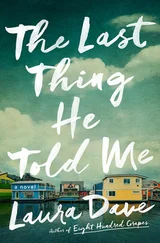The peculiarity was in the other entries. They were not exactly the kind of notes a professional writer or reporter might make, but neither were they conventional “diary” notes, the confessions or private thoughts set down by a civilian. What was peculiar about these entries was that they reflected elements of both modes, the personal and the reportorial, with no apparent distinction between the two. There were scraps of what appeared to be overheard dialogue, there were lists of roses and other garden plants. There were quotes from and comments on news stories, there were scraps of remembered poetry. There were what appear to have been passing thoughts, some random, some less so. And there were of course the dreams.
“I get a little spacey when I stop smoking, probably because I get too much oxygen.”
“What he’s best at getting hold of is other people’s money.”
This much I can see without going outside: climbing Cecile Brunner roses, Henri Martin roses, Paulii roses, Chicago Peace roses, Scarlet Fire roses, blue and white amaryllis, scabiosa, Meyer lemons, star jasmine, santolina, butterfly bush, yarrow, blue lavender, delphinium, gaura, mint, lemon thyme, lemon grass, bay laurel, tarragon, basil, feverfew, artichokes. This much I can see with my eyes closed. Also: the big yellow and white poppies in the bed on the south wall.
“You may have stayed at the Savoy, but I doubt very much you stayed at the Savoy and lost sixteen thousand pounds at Annabel’s.”
I have eaten dinner on Super Bowl Sunday in the most expensive restaurants in Detroit, Atlanta, San Diego and Tampa Bay.
Interview in LAT with someone who just resurfaced after thirteen years underground: “I never defined myself as a fugitive. I defined myself as a human being. Human beings have things they have to deal with. Because I was Weather Underground, being a fugitive was something I had to deal with, but it wasn’t a definition of me.” What mean??? If a fugitive is what you are, how does it change the situation to define yourself as a “human being”?
I fled Him down the nights and down the days I fled Him down the arches of the years
The most terrifying verse I know: merrily merrily merrily life is but a dream.
DREAM, the next two entries nonetheless begin.
I go to my mother’s house in Laguna, crying. Ward’s daughter Belinda is also there. Catherine has been kidnapped, I tell my mother. “I thought she came to tell you she was having Christmas dinner at Chasen’s,” Belinda says.
A party in a house that seems to be this one. Wynn and Catherine and I live in it but so do my mother and father. The party is in progress and I go out on the beach for a little quiet. When I come back my father is waiting at the bottom of the stairs. Catherine is either drunk or drugged, he says. He can hear her vomiting upstairs but doesn’t want to intrude. I run up and notice that the upstairs has been painted. This is a little disturbing: how much time exactly has passed?
The last entry in this notebook, not a dream, was actually not one but six notes, each made in a different pen and on a different page but all apparently made in response to the daily regimen Catherine had described in her eighth-grade autobiographical essay as “radiation zapping following the exsishun [ sic ] of a stage 1 good prognose [ sic ] breast lesion”:
The linear accelerator, the mevatron, the bevatron.
“Just ask for R.O., it’s in the tunnel.”
“A week before you finish you’ll go on the mevatron to get your electrons. Now you’re getting your photons.”
Photons? Or “protons”???
Waiting for the beam after the technician goes and the laser light finds the place.
The sensation of vibration when the beam comes. The stunning silent bombardment, the entire electromagnetic field rearranged.
“You don’t feel anything,” Arnie Stine said. “The beam doesn’t feel like anything.”
“Just between us nobody who hasn’t been on that table has any idea what the beam feels like,” the technician said.
The beam is my alpha and my omega
I finished this morning
How I feel is excluded, banished, deprived of the beam
Alcestis, back from the tunnel and half in love with death
Of course we would not need those last six notes to know what Elena’s dreams were about.
Elena’s dreams were about dying.
Elena’s dreams were about getting old.
Nobody here has not had (will not have) Elena’s dreams.
We all know that.
The point is that Elena didn’t.
The point is that Elena remained remote most of all to herself, a clandestine agent who had so successfully compartmentalized her operation as to have lost access to her own cut-outs.
The last entry in this notebook is dated April 27 1982.
It would have been not quite four months later, August 1982, when Elena McMahon left Wynn Janklow.
Relocated to the East Coast, as she put it.
It would have been some three months after that, late November 1982, when she returned for the first time to California.
She had flown out from Washington on the morning flight to interview a Czech dissident then teaching at UCLA and rumored to be short-listed for a Nobel Prize in literature. She had meant to do the interview and go straight to the airport and turn in the rental car and take the next flight back, but when she left UCLA she had driven not to the airport but up the Pacific Coast Highway. Just as she would make no conscious decision to walk off the 1984 campaign, just as she would make no conscious decision to ask for a flight to Miami instead of to Washington, she had made no conscious decision to do this. She was unaware even that the decision had been made until she found herself parking the rental car in the lot outside the market where she used to shop. She had gone into the drugstore and said hello to the pharmacist and picked up a couple of surfing magazines for Catherine and a jar of aloe gel for herself, a kind she had been unable to locate in Washington. The pharmacist asked if she had been away, he hadn’t seen her in a while. She said that she had been away, yes. She said the same thing to the checkout clerk in the market, where she bought corn tortillas and serrano chiles, something else she had been unable to locate in Washington.
She had been away, yes.
Always good to get back, right.
With weather this dry they were lucky to have gotten through Thanksgiving without a fire, yes.
No way she was ready to start dealing with Christmas, no.
She had sat then in the rental car in the parking lot, almost deserted at four in the afternoon. Four in the afternoon was not the time of day when women who lived here shopped. Women who lived here shopped in the morning, before tennis, after working out. If she still lived here she would not be sitting in a rental car in the parking lot at four in the afternoon. One of the high school boys who worked in the market after school was stringing Christmas lights on the board advertising the day’s specials. Another was rounding up carts, jamming the carts into long trains and propelling each train into the rack with a single extended finger. By the time the last light dropped behind Point Dume the carts were all racked and the Christmas lights were blinking red and green and she had stopped crying.
“What was that about,” Treat Morrison said when she mentioned this to him.
“It was about my not belonging there anymore,” she said.
“Where did you ever belong,” Treat Morrison said.
Читать дальше












